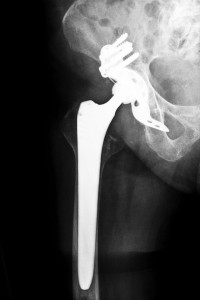
The DePuy ASR XL Acetabular system was touted as one of the new generation of hip replacements when it was introduced nearly a decade ago. However, recipients of the device soon began to experience complications, leading in some cases to the need for corrective surgery. Residents of Arkansas who have received the device and are experiencing health problems as a result should consider consulting with an attorney for the purpose of obtaining monetary compensation.
Employing all-metal components, the ASR offered the promise of reduced wear and increased longevity when it was approved for use by the U.S. Food and Drug Administration (FDA) in 2005. Its approval was done in a manner that did not require it to undergo clinical trials, and according to one press report, the device was marketed without adequate research and testing. The FDA has received more than 300 complaints concerning the ASR since 2008. The trouble is reportedly related to the production of metal debris that occurs during normal wear, and which can have adverse effects on the surrounding tissue.
Some of the patients developed aseptic lymphocyte-dominated vasculitis-associated lesions, which are related to the presence of metal particles and ions, and pseudotumors, which are enlargements in the tissue that resemble actual tumors and may also be caused by metal particulates.
Early research pointed to a failure rate of more than 10 percent, with these patients requiring surgery to replace the implant. A subsequent study indicated that as many as 20 percent of the recipients of the ASR would need corrective surgery no more than four years after the original implantation, and nearly half would requiry surgery after six years. Patients who did not have surgery may still have experienced symptoms, including pain.
Corrective surgery and other forms of medical treatment can be expensive, and anyone requiring such care is entitled to compensation to help cover those costs. Compensation is also needed to deal with other expenses and the physical pain and mental anguish related to the failure of the hip device. Legal action against DePuy, which is a pision of the company Johnson & Johnson, has been initiated in accordance with product liability laws. The first in a series of lawsuits ended with the plaintiff being awarded more than $8 million in damages by a court in California.
Two years of complaints prompted a recall of the ASR in the U.S. in March 2010, three months after the same action was initiated in Australia. The same month as the American recall, a letter was released by the manufacturer that contained information showing a higher rate of failure in its product than in traditional implants. Research further showed that the risk of failure was higher in patients of small stature, and who are for that reason more likely to be women and inpiduals with weak bones. Another study published in England suggested that all-metal devices were in general no more effective than traditional implants and could be more susceptible to failure.
Prior to the recall, DePuy announced that it would discontinue producing the ASR. However, this action came too late to satisfy some medical authorities, especially when considering that by that time more than 90,000 patients had received the device throughout the world. About a third of those implantations have been carried out in the U.S.
The victims of such defective products as the ASR and who live in Arkansas are entitled to compensation for the hardships inflicted upon them. Compensation can be sought with the assistance of an experienced personal injury attorney, one who can be the best advocate for anyone seeking justice in any product liability case. Such an attorney can be found by contacting Attorney Group for Arkansas today.





